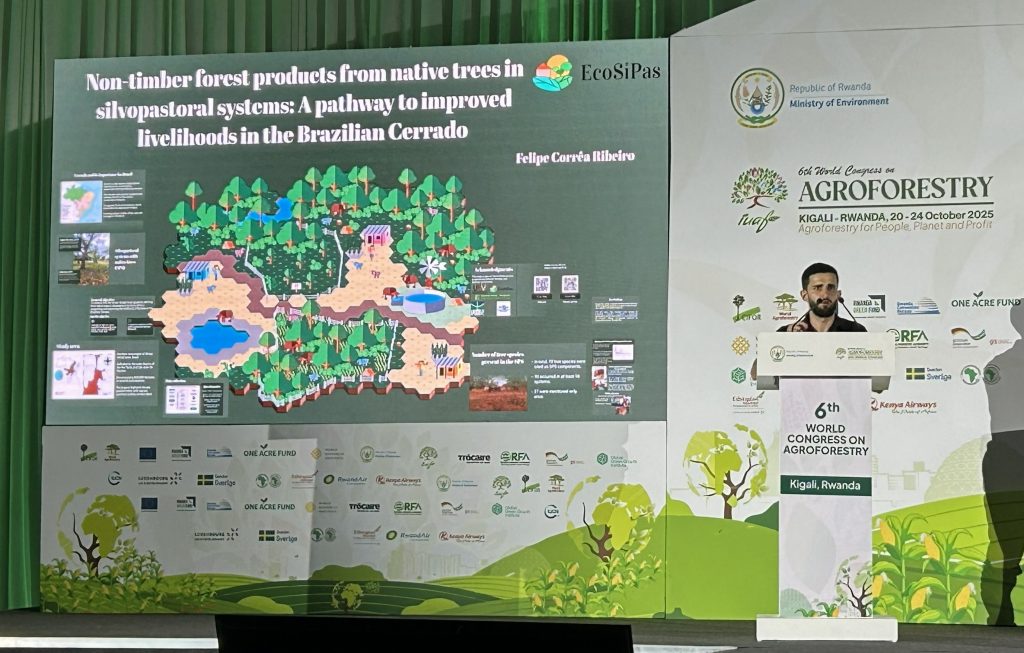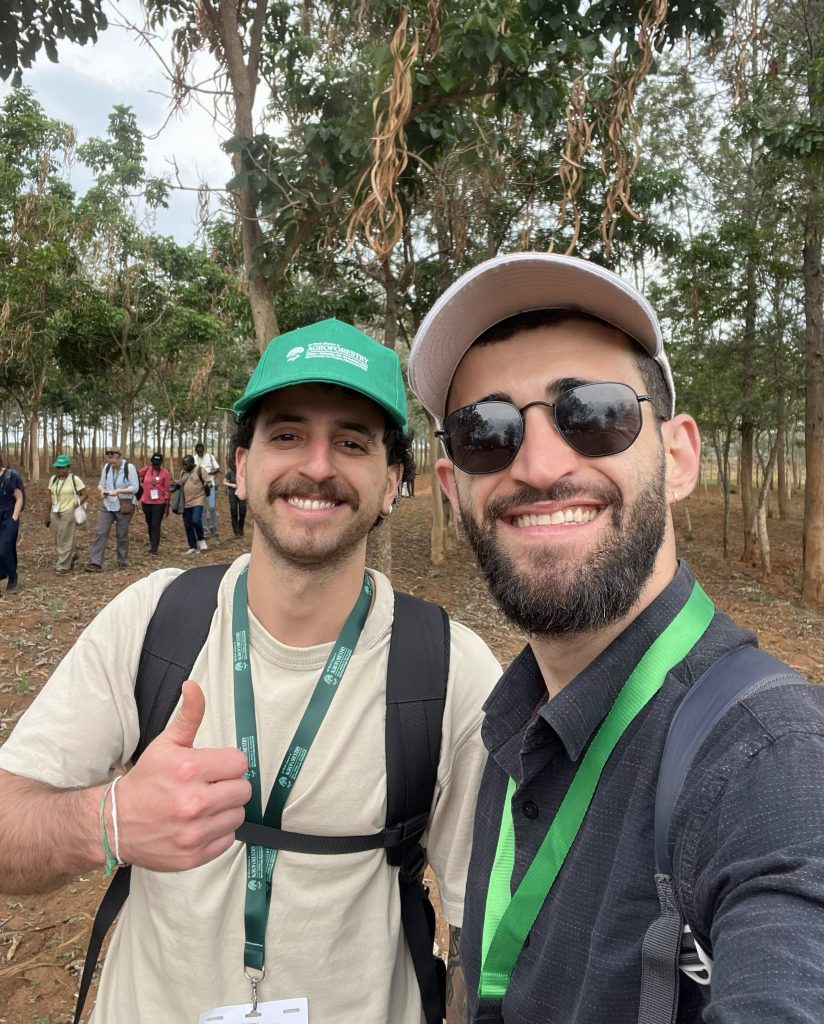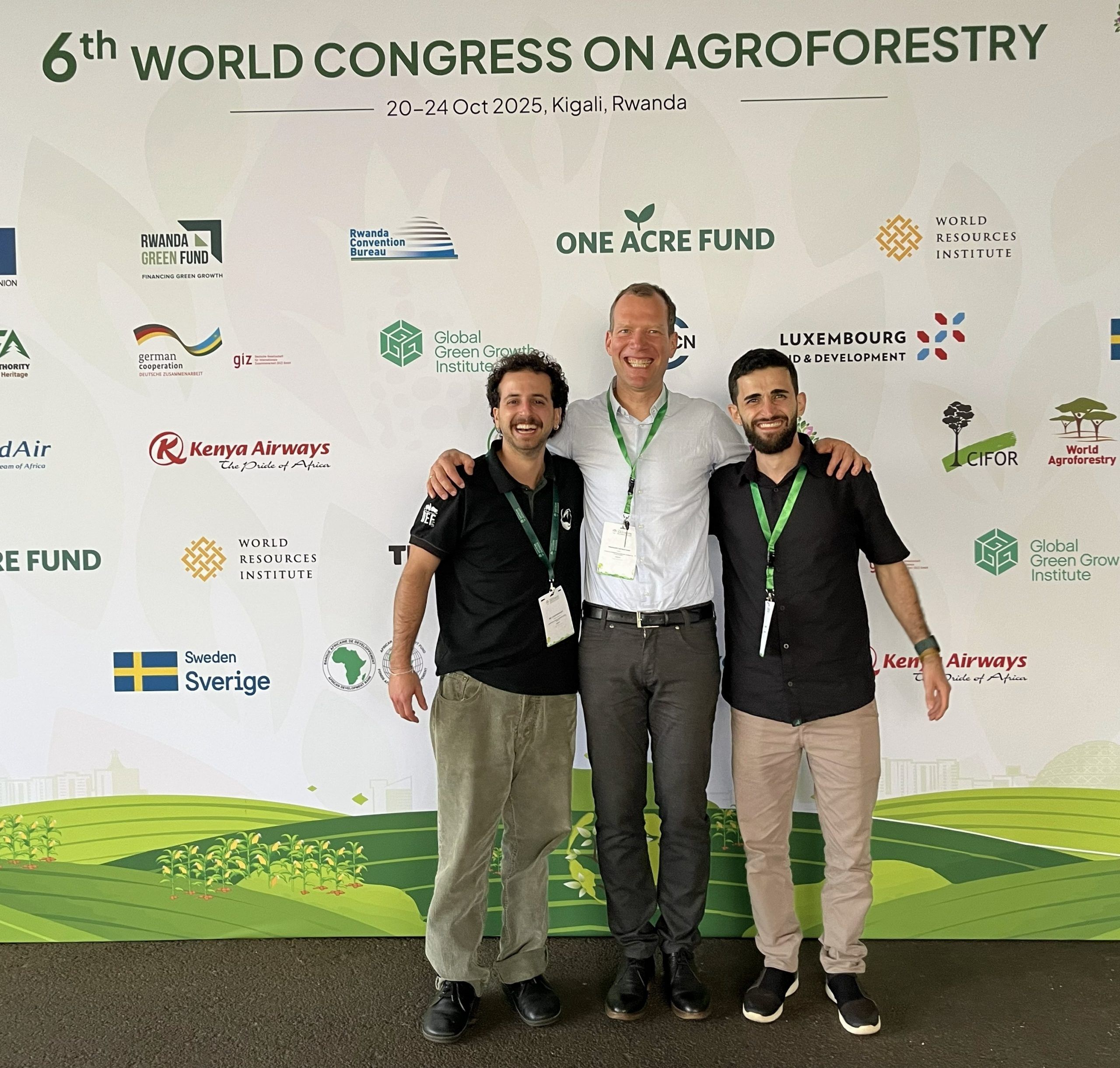EcoSiPas Researchers @ 6th World Congress on Agroforestry
The EcoSiPas team was strongly represented at the 6th World Congress on Agroforestry which took place from the 20th to 24th of October in Kigali, Ruanda. With in total three oral presentations we could share our results from the ongoing research activities in the Brazilian Cerrado, with the scientific community.
Two presentations focused on the use and potential of non-timber forest products (NTFPs) in the Cerrado. Felipe Ribeiro demonstrated that numerous native tree species exist in the region from which a vast number of NTFPs are collected. Over half of the farm households interviewed collect NTFPs, yet only about 1/3 were sold, highlighting their importance for household consumption while commercialization potential to increase income is not fully exploited yet. The presentation by Katie Meinhold (presented by Dietrich Darr), focused on two specific NTFPs, Baru (Dipteryx alata) and Pequi (Caryocar Brasiliense). Commercial value chains of both these species remain predominantly informal, although Baru typically reaches high-value, (inter)national markets, whereas Pequi is more commercialized locally, within the Cerrado. A variety of barriers need to be overcome to enhance benefits for extractivists, as integrating labour costs often make this activity unprofitable.
The presentation by Lucas Kerkoff highlighted where priority areas for silvopastoral systems (SPS) adoption can lie, based on a broad set of biophysical parameters taken into consideration. About 20% of the land shows potential for including SPS as a sustainable land-sharing mechanism, through which ecosystem service provision within productive landscapes can be enhanced.


















